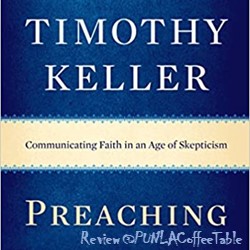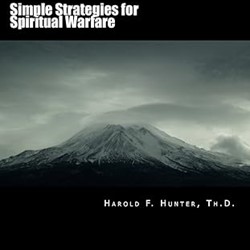23V23 – The Problem of Evil: The Challenge to Essential Christian Beliefs (Book Review)
(written by Dr. Kip Wehrman 07/28/2023)
Hello my friends. Thanks for joining me today for an @ the PUNLA coffee table. I would like to share with you a book I read by Jeremy Evans “The Problem of Evil: The Challenge to Essential Christian Beliefs”. I to share this with you as a potential resource that at least some of you might be interested in.
Let’s Pray.
Chapter One : The Problem of Evil: Introductory Issues
The Problem of Evil: The Challenge to Essential Christian Beliefs by Jeremy Evans begins with introductory issues about the problem of evil. What do we mean by evil? “Christians have generally agreed that evil is not a substance or a thing but instead is a privation of a good thing that God made.” Evil, since it is not a thing in itself, is parasitic on the good. The thought follows that: God created only actual things (or substances). Evil is not an actual thing (or substance). Therefore, God did not create evil.
There are common categories of evil: moral evil and natural evil. Moral evil occurs when free persons misuse their freedom in a way that the content of their will and/or actions violates a moral standard. Natural evil is generally accepted as evil resultant from nonhuman causes such as earthquakes, hurricanes, and tornados.
Evans explains we must distinguish between a defense and theodicy. “A theodicy is an attempt to justify the ways of God in light of the vast amounts of evil we find in the world.” A theodicy attempts to answer the question “why.” “A defense, as one might guess, is not an attempt to explain what God is up to in permitting evil, but instead tries to provide rationally compelling reasons to question the soundness of the argument from evil against the existence of God.” Evans discusses several theodicies; the punishment theodicy, the free-will theodicy, the natural-law theodicy, and the soul-making theodicy.
Chapter Two : The Logical Problem of Evil
Chapter two addresses the logical problem of evil. “The problem of evil, or the argument from evil, suggests an incompatibility between the perfect-making properties of God and the fact that evil exists.” Evans next discusses Alvin Plantinga and the free-will defense.
Chapter Three : The Evidential Problem of Evil
Chapter three addresses the evidential problem of evil. The best expression of the evidential arguments comes from William Rowe, who makes the following argument: “There exist instances of intense suffering which an omnipotent, omniscient being could have prevented without thereby losing some greater good or permitting some evil equally bad or worse. An omniscient, wholly good being would prevent the occurrence of any intense suffering it could, unless it could not do so without thereby losing some greater good or permitting some evil equally bad or worse. Therefore, there does not exist an omnipotent, omniscient, wholly good being.” Rowe argues God has moral obligations and evil is evidence of a moral lapse of God.
Chapter Four : The Defeat of Good and Evil
Chapter Four addresses the concept of defeating evil with good. This is the idea that good can in some way counterbalance bad. Conversion repairs us from the effects of sin effectively defeating evil.
Chapter Five : Divine Hiddenness
Chapter five addresses the argument of divine hiddenness based on the writings of Friedrich Nietzsche. The argument is; if there is a God, he is perfectly loving. If a perfectly loving God exists, reasonable nonbelief does not occur. Reasonable nonbelief does occur. Thus, No perfectly loving God exists. So, There is no God. Evans discusses some proposed and failed solutions to divine hiddenness. Evans argues that divine concealment is necessary as a protective measure for His creation. Another response to divine hiddenness is to take seriously the implications of the fall and the noetic effects of sin. Evans discusses the epistemic problem argument and the reflective nonbeliever’s argument.
Chapter Six : The Problem of Hell
Chapter six addresses the problem of Hell. People struggle with the concept of Hell and a loving and just God. Christian universalism argues God will eventually reconcile all things to himself through the person and work of Jesus Christ. The idea is God cannot fail His endeavors. This line of reason ignores sin and instead focuses on the power of God to overcome sin. Christian annihilationism argues that those persons not redeemed by God are ultimately extinguished from existence upon judgement. The idea is no one consciously suffers forever. Unfortunately, annihilationism does not accommodate the full scope of Scripture evidence. Evans then responds to the traditional view objections about the injustice of hell.
Chapter Seven : Natural Evil: Comparing Theism and Naturalism
Chapter seven addresses the natural evil by comparing theism and naturalism. The concept of natural evil is not as clearly delineated as that of the problem of moral evil. It is generally agreed that the regularities in nature provide a great good to the overall. Much of what is called natural evil is actually brought about by the misuse of free will. What is more, if a person has antecedent knowledge of the likelihood that living in a certain region brings with it a greater threat of danger from natural disasters, this too is more of an issue of choice than of suffering born from purely natural causes. The only account for which I can conceive of the appropriate use of the term natural evil is after the following exceptions to what is often called natural evil are ruled out: 1) Not connected to the free choices of any nondivine agent, 2) Not connected to the necessary balance of nature, 3) Not connected to divine judgment, and 4) Not conflating bad states of affairs with wrong states of affairs.
Evans then discusses three approaches; C. Stephen Layman comparing theism and naturalism, fine tuning as a comparative approach, and consciousness as a comparative approach.
Chapter Eight : Prolegomena to the Deontological Problem of Evil
Chapter eight addresses prolegomena to the deontological problem of evil. The deontological problem of evil has several dimensions. First, there is a difference between axiological and deontological arguments. Axiological arguments debate the merits of the goodness or badness. Deontological formulations focus on the rightness or wrongness of actions. It is claimed that in order for God to be morally perfect, God must fulfill certain obligations to his creation.
Chapter Nine : Moral Evil: Comparing Theism and Naturalism
Chapter nine addresses moral evil by comparing theism and naturalism. There are three perspectives on goodness; 1) goodness is a complex property, 2) goodness is a simple property, and 3) goodness in nothing or meaningless. William Wainwright says, “First, value claims are either true or false. Second, values are universal. If something is good or right or beautiful, it is good or right or beautiful at all times and all places. Third, values aren’t products of our desires.” One naturalism proposal is the ideal observer theory. A theistic construction offers a simpler alternative to naturalism and provides an asymmetrical necessity. This results in the divine command theory where God’s commands what is goodness.
Chapter Ten : The Relationship between God’s Will and God’s Commands
Chapter ten addresses the relationship between God’s will and God’s commands. Evans discusses Mark Murphy’s divine will formulation.
- Obligation for A to φ depends on God’s commanding A to φ.
- Obligation for A to φ depends on God’s willing that A φ.
- Obligation for A to φ depends on God’s willing that it be obligatory for A to φ.
Chapter Eleven : Is God Morally Arbitrary or Morally Irrelevant?
Chapter eleven addresses the question, is god morally arbitrary or morally irrelevant?
The divine command theory of ethics seems to be subverted by the Euthyphro dilemma that comes from Platonic dialogue Euthyphro. The logic of Euthyphro dilemma is faulty however when one considers the doctrine of divine simplicity. According to divine simplicity, God is not made out of parts but a whole with no differentiation.
Chapter Twelve : Evil and the Worship-Worthiness of God
Chapter twelve addresses evil and the worship-worthiness of God. Evans defends the notion that God is necessarily morally perfect. There are several reasons for wanting God to be maximally free. If God is determined by external conditions, then his moral autonomy is compromised. The is equally necessary for goodness to be defined by an omnipotence God.
Evans says based on the discussion about God’s freedom and God’s omnipotence, now we have a basis on which to the claim that God is worthy of worship.
Concluding Thoughts
In his concluding thoughts, Evans says that his objective was to address two universal features of human experience, namely the problem of evil and the problem of suffering. The free-will defense is a sufficient response to the logical problem of evil. However, the free-will defense is not a satisfying answer to the evidential problem of evil or the moral obligation of God. However, if God exists and He does, then He is not subject to moral laws or moral duties. And if God is not subject to moral duties, the He cannot fail to meet those duties.
Let’s Pray.
I did not really care for this book. The arguments are well made but seem to each only partially address the issue. I don’t think I would recommend this book. There are many books on the subject that I think might be better.
Thank you for joining me @ the PUNLA Coffee Table today, I hope you’ll join us again. If you liked the message, please share the link with a friend. Send me comments, my email should be on the screen.
Until next time @ the PUNLA Coffee Table. God bless.


